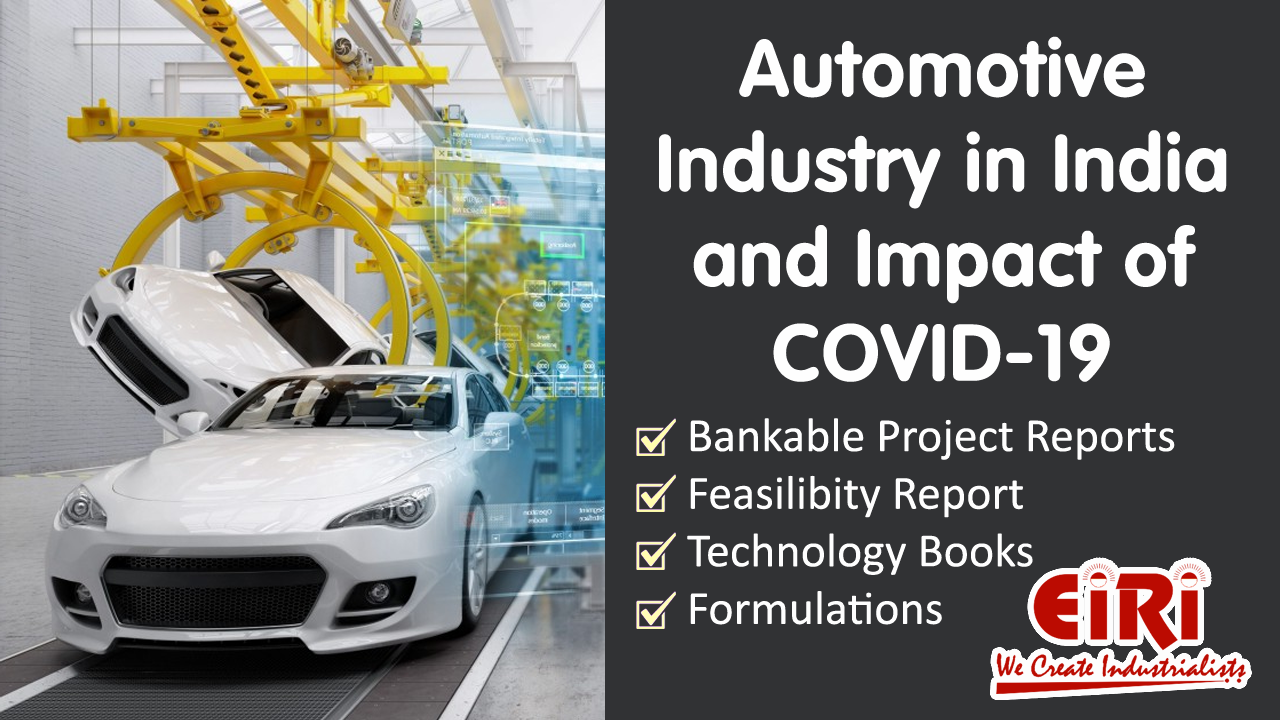Automotive industry in India and Impact of COVID-19
Automobile industries contribute more to India’s economic development. On the other hand, they are witnessing changes over these days in order to provide better services. In fact, they are focusing more on implementing new technologies for getting optimal results. The Indian automotive industry is now aiming at offering more job opportunities. Moreover, Indian government is making efforts to permit foreign direct investments (FDI) to make automotive industries the largest one. Another thing is that it is considering introducing new policies for automotive industries that will benefit them in various ways.
Factors that will change the automotive industries
There are certain factors that will influence the automotive industries in the future. Some of them include digital technologies, changing customer preferences, electrical vehicles, intelligent ability, and technical advancements. Technologies such as artificial intelligence, machine learning, cloud computing, and internet of things will also play an important role in developing new business models. Apart from that, they enable customers to ensure a better mobility experience. In other words, technologies may impact automotive industry units significantly that will change the markets. The introduction of electrical cars and hybrid vehicles may transform the automobile industries in coming years.
Changes that can affect automotive industries
A recent survey says that Indian automotive industries are undergoing changes at three different levels. They include vehicle navigation, connected cars, aggregators, driving analytics, and logistics solutions. Although leading car manufacturers follow the latest innovations, it is only the start-ups that are using them properly. For instance, a start-up company in Bhopal is working on developing both on-road and off-road self-driving technologies with modern cameras. The cars allow users to drive the same in unstructured environmental conditions to ensure high efficiency. As Indian government is giving more importance to electrical vehicles, the production may increase in the future.
Challenges faced by start-ups
Start-ups in automotive industries have to face some challenges when it comes to innovation technologies. Some of them include product development, globalization, disruptions, and marketing that will result in major problems. Therefore, they should give more importance to them for ensuring a better productivity. Indian companies who joined the bandwagon should know how to overcome problems effectively in order to achieve high productivity. Apart from that, Indian markets will see many changes when it comes to car designs and other things. Also, they allow the ride-share drivers to get high performance on the roads to witness peace of mind.
Impact of COVID-19 on Indian automotive sector
The Indian automotive sector was already struggling in FY20. before the Covid-19 crisis. It saw an overall degrowth of nearly 18 per cent. This situation was worsened by the onset of the Covid-19 pandemic and the ongoing lockdowns across India and the rest of the world. These two years (FY20 and FY21) are challenging times for the Indian automotive sector on account of slow economic growth, negative consumer sentiment, BS-VI transition, changes to the axle load norms, liquidity crunch, low capacity utilisation and potential bankruptcies.
The return of daily life and manufacturing activity to near normalcy in China and South Korea, along with extended lockdown in India, gives hope for a U-shaped economic recovery. Our analysis indicates that the Indian automotive sector will start to see recovery in the third quarter of FY21. We expect the industry demand to be down 15-25 per cent in FY21. With such degrowth, OEMs, dealers and suppliers with strong cash reserves and better access to capital will be better positioned to sail through.
Auto sector has been under pressure due to a mix of demand and supply factors. However, there are also some positive outcomes, which we shall look at.
- With India’s GDP growth rate for FY21 being downgraded from 5% to 0% and later to (-5%), the auto sector will take a hit. Auto demand is highly sensitive to job creation and income levels and both have been impacted. CII has estimated the revenue impact at $2 billion on a monthly basis across the auto industry in India.
- Supply chain could be the worst affected. Even as China recovers, supply chain disruptions are likely to last for some more time. The problems on the Indo-China border at Ladakh are not helping matters. Domestic suppliers are chipping in but they will face an inventory surplus as demand remains tepid.
- The Unlock 1.0 will coincide with the implementation of the BS-VI norms and that would mean heavier discounts to dealers and also to customers. Even as auto companies are managing costs, the impact of discounts on profitability is going to be fairly steep.
- The real pain could be on the dealer end with most of them struggling with excess inventory and lack of funding options in the post COVID-19 scenario. The BS-VI price increases are also likely to hit auto demand.
There are two positive developments emanating from COVID-19. The China supply chain shock is forcing major investments in the “Make in India” initiative. The COVID-19 crisis has exposed chinks in the automobile business model and it could catalyze a big move towards electric vehicles (EVs). That could be the big positive for auto sector.




